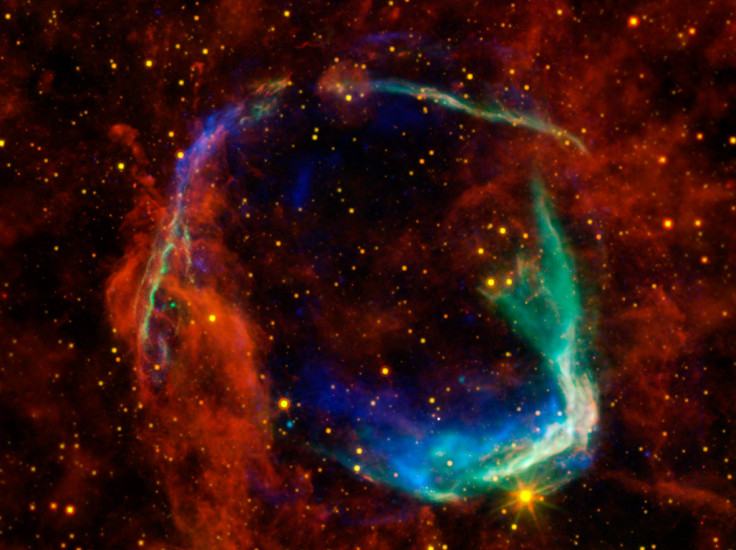Galactic dust gathered from ocean floors suggests 'recent' massive supernova near Earth

A low concentration of heavy elements in galactic dust gathered from the ocean floor suggests current theories of supernova may need to be revised.
A study conducted by the Australian National University that examined plutonium 244 obtained from the deep earth crust and ocean sediments implies that heavy elements were made only in super massive explosions like the merging of two neutron stars.
The fact that these heavy elements like plutonium are present on earth suggests that such an explosive event happened close to the earth around the time it formed, says a university release.
Present theories of supernovae believe that some of the materials essential for human life, like iron, potassium and iodine as well as lead, silver, gold and radioactive elements like uranium and plutonium are created in supernova explosions and distributed throughout space.
Supernova is the dying stages of an exploding massive star. As the core begins to churn heavier elements like iron, it can no longer sustain the fusion process and collapses under its own tremendous gravity.
"Small amounts of debris from these distant explosions fall on the earth as it travels through the galaxy," said lead researcher Anton Wallner, from the Research School of Physics and Engineering.
The team analysed galactic dust from the last 25 million years that has settled on the ocean and found there is much less of the heavy elements such as plutonium and uranium than expected.
Wallner's team studied plutonium-244 which has a half-life of 81 million years over which it decays. Any plutonium-244 that existed when the earth formed from intergalactic gas and dust over four billion years ago has long since decayed.
This means any plutonium-244 found on earth must have been created in more recent explosive events during a few hundred million years.
A 10 centimetre-thick sample of the earth's crust, representing 25 million years of accretion, as well as deep-sea sediments collected from a very stable area at the bottom of the Pacific Ocean were examined.
"We found 100 times less plutonium-244 than we expected," Wallner said, adding that this would mean a change to resent supernova theories.
© Copyright IBTimes 2025. All rights reserved.





















